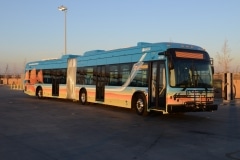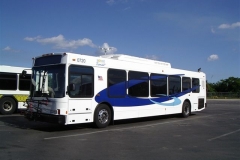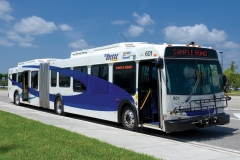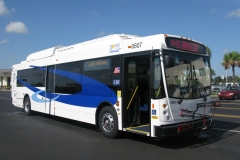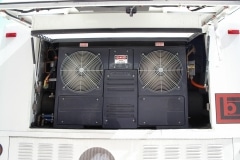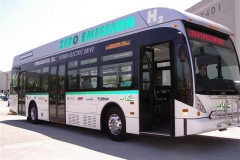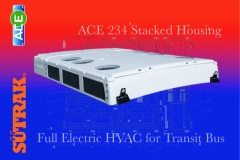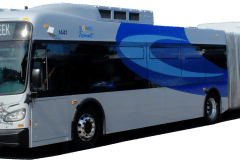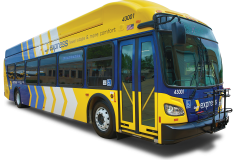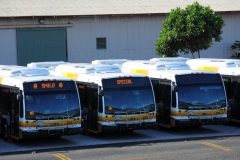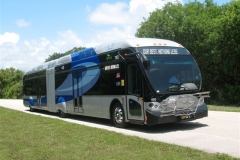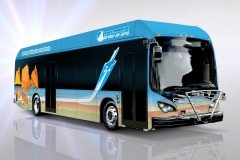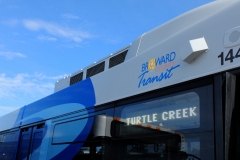What’s all the hype about? Operational and efficiency benefits are at the heart of the matter.
#1 Electric HVAC systems on the transit bus have the capability of providing full capacity while at an idle. This is a very big deal considering the average bus spends nearly half of its life at idle. Conventional systems are heavily restricted during idle since the compressor RPM is less than half of full throttle. There is a direct correlation with compressor output and engine RPM for traditional compressor systems.
Electric systems maximize performance while idling when capacity is needed most. Case in point, a bus is at a stop for one minute on a very hot day. The doors are open and heat soaked passengers are getting on board. Electric HVAC systems have a great advantage over traditional compressor counterparts for this reason.
#2 Electric HVAC systems enable bus manufacturers and operators to use self contained HVAC designs. By locating the compressor into the HVAC package, it eliminates the need for refrigerant tubing and all potential leak points from the design. It speeds up installation and improves testing and reliability of systems when they leave both A/C and Vehicle OEM factories
#3 Electric Scroll compressors are inherently better by design than piston or screw compressor options. “The biggest advantage of scrolls over screws and piston designs is the ability to handle liquid. Typically screws do not do this very well at all. This is especially important on this market because there is no way to install a crankcase heater on the compressor to keep refrigerant from migrating to it. Otherwise, all the other advantages like efficiency, liquid management, fewer moving parts, and stuff of that nature all will give the advantage to scroll”. Scroll compressors are hermetic in design which eliminates shaft seal problems inherent in both screw and piston driven designs.

